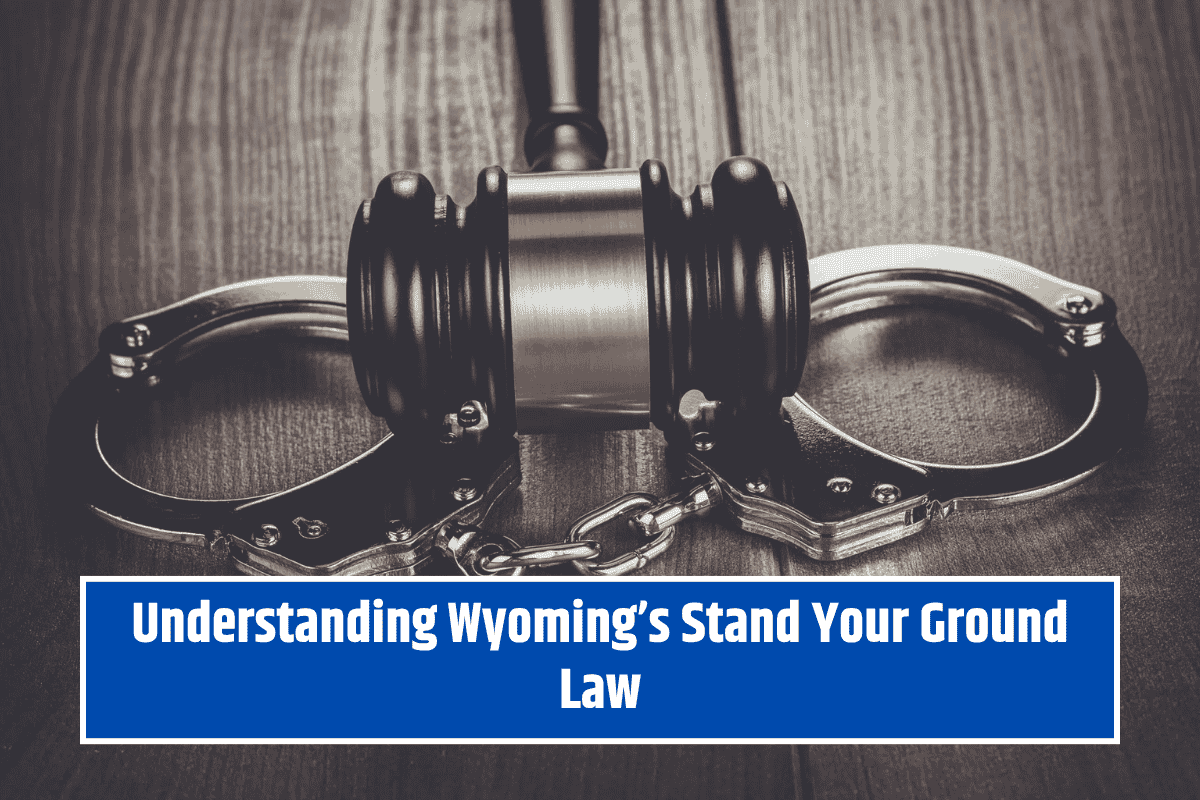Self-defense laws in the United States allow individuals to use force, including lethal force, to protect themselves from imminent danger. Traditionally, these laws required people to retreat if they could do so safely, except when defending their homes (the Castle Doctrine). However, some states, including Wyoming, have enacted Stand Your Ground laws, which remove the retreat requirement and offer expanded protections for self-defense. Let’s explore how these laws work and what they mean for individuals in self-defense situations.
What Are Stand Your Ground Laws?
Traditionally, self-defense laws in the U.S. required individuals to retreat from a confrontation, if possible, before resorting to lethal force. The principle behind this was that deadly force should only be used as a last resort when no other options—like retreating or using non-lethal force—could prevent harm. However, Stand Your Ground laws, like those in Wyoming, challenge this idea.
These laws allow individuals to use deadly force without needing to retreat, even if they could have de-escalated or avoided the conflict. Essentially, Stand Your Ground laws apply in public spaces and permit lethal force if a person feels threatened, regardless of whether they could have stepped away or avoided the confrontation without harm. The law focuses on allowing individuals to defend themselves without being legally obligated to retreat when they are in public spaces and are not involved in illegal activities.
Wyoming’s Stand Your Ground Law
Wyoming has enacted its own version of Stand Your Ground laws. These laws remove the duty to retreat, giving people the right to use deadly force in self-defense under certain conditions. Wyoming’s law allows deadly force when:
- Lawful Presence: The person must be in a location where they have a right to be. This means they are not trespassing or involved in any illegal activity.
- No Duty to Retreat: A person is not required to retreat from a situation before using deadly force. If someone feels their life or safety is at risk, they are permitted to use deadly force, even if retreating or de-escalating the situation was an option.
- Initial Aggressor Exception: The law does not protect those who are the initial aggressor in a confrontation. If a person starts the conflict, they may not be able to claim self-defense under the Stand Your Ground law.
Key Takeaways from Wyoming’s Stand Your Ground Law
- No Duty to Retreat: Under Wyoming’s law, there is no obligation to retreat before using deadly force in self-defense, as long as the individual is lawfully present and not involved in illegal activities.
- Self-Defense in Public: The law allows individuals to use deadly force in public if they feel threatened. The person is not required to attempt retreat if they are lawfully present.
- Limits on Protection: Wyoming’s law does not protect those who are the initial aggressor in a conflict. If a person provokes the situation, they may lose the right to self-defense under the Stand Your Ground law.
Why Stand Your Ground Laws Matter
Stand Your Ground laws, particularly in Wyoming, provide a legal framework that allows individuals to act in self-defense without the added burden of having to retreat from a confrontation. This is especially important in public spaces, where threats can arise unexpectedly. However, these laws also place limitations on their use. If a person provokes a confrontation, they lose the right to claim self-defense under the law. Wyoming’s law makes it clear that self-defense is a right, but it is only available to those who are not the aggressor.
Wyoming’s Stand Your Ground law expands the right to self-defense by removing the duty to retreat in public spaces. This law permits individuals to use deadly force if they feel threatened, as long as they are in a location they have a right to be and are not involved in illegal activity. The law also ensures that those who are the initial aggressor in a confrontation cannot claim self-defense. Understanding these key aspects can help individuals navigate self-defense situations in Wyoming and similar states that have adopted Stand Your Ground laws.
